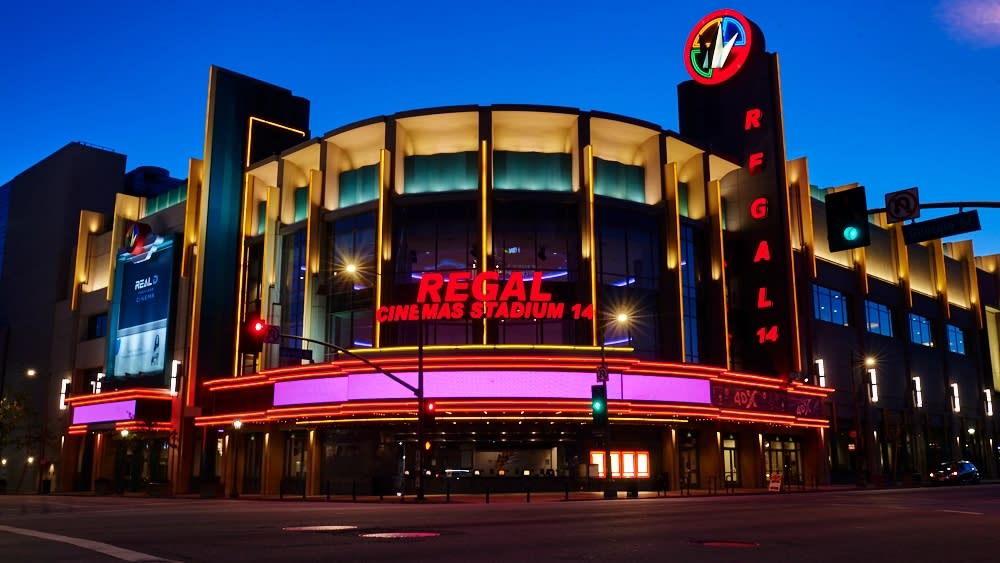Regal Filing Bankruptcy? Here’s What It All Means

The Wall Street Journal reported today that Cineworld, the London-based exhibitor that’s the second-largest in the world, is expected to file Chapter 11 bankruptcy in the United States and declare insolvency in the U.K. (a legal action similar to Chapter 11). Regal Cinemas, the cinema brand that operates in the U.S. did not return a call seeking comment, but earlier this week Cineworld itself hinted at the possibility in a statement that warned of immediate measures needed to deal with debts.
More to come, but for now here’s some implications to consider:
More from IndieWire
With 'Dragon Ball Super' #1 at $20 Million, Anime Is a Box-Office Hero
Cineworld, Owner of Regal Cinemas, Will File for Chapter 11 Bankruptcy -- Report
Regal Cinemas will continue to operate.
This is not the same as the more draconian bankruptcy action taken last year by Pacific Theaters, which also owned Arclight Cinemas: That meant it was out of business. This is the more traditional form of reorganization, in which the operators hope to readjust their financial obligations — debt (including film rentals), leases, contracts, and other — with the goal of staying in business.
Exhibition survived major companies going Chapter 11 before.
Earlier in this century, key chains like Loews Cineplex and General Cinema went a similar route when their revenues didn’t keep pace with the cost of major expansions and acquisitions. Of note: The companies didn’t survive, but kept most locations operating and positioned them for acquisition (in the case of Loews Cineplex, by AMC). Regal itself declared bankruptcy once before, in 2001. The company evolved with new investors who also took over United Artists and Edwards Theaters, eventually merging all of them.
Regal is considered the most financially vulnerable exhibitor.
Although most circuits had high levels of debt before Covid, Cineworld had the added burden of having recently acquired Regal in December 2017 for $3.2 billion. It was a big bet on continued growth that could not anticipate the closure of theaters just over two years later.
AMC Entertainment, the largest exhibitor, also has debt concern; a meme stock rally infused the company with liquidity, and inventive management and improved revenues shored up its short-term prospects. As the #3 domestic chain, Cinemark is regarded as being the the most stable of the big three.

Courtesy Cinemark
AMC and Cinemark dominate the U.S.
Although Regal is #2 in grosses and number of screens, most urban areas have other exhibitors to pick up the slack in the unlikely event that Regal theaters close. AMC is far more dominant in New York, Los Angeles, and Chicago, while Cinemark has a huge footprint in much of the south and west.
Landlords who own buildings that contain theaters have major incentives to continue operations even if Regal doesn’t operate the screens. In many cases, they are tricky to repurpose. They serve as draws for surrounding businesses in many shopping malls and the recent summer upsurge gives hope that it makes sense to stick with them. If Regal backs away, existing companies would likely to take over in many situations.
Regal Cinemas could see some immediate impact.
Chapter 11 usually leads to cost cutting and limited maintenance. That could mean reduction of hours at some locations, or closing on certain weekdays.
This is not what the industry needed after a hopeful summer.
Much-improved grosses this season, led by “Top Gun: Maverick,” gave hope that the industry could maintain something resembling the past structure of movie production and distribution. However, the total take remains well below pre-Covid totals. This move reinforces that reality and it comes at the top of a three-month period of limited wide releases — the result of lagging production and content moving to home platforms — will make things worse.
The timing could have been worse.
Decision makers — studios, board members, stockholders — must ask themselves if they still bet on continued theatrical recovery. However, theaters showed their potential this summer just as the shiny new object of streaming started to show tarnish. Despite this setback, studios are now far less likely to abandon theaters.
Best of IndieWire
All the Details on 'Hunger Games' Prequel 'The Ballad of Songbirds and Snakes'
New Movies: Release Calendar for August 19, Plus Where to Watch the Latest Films
From 'Barbie' to 'Babylon,' Here's Everything Margot Robbie Has in the Works
Sign up for Indiewire's Newsletter. For the latest news, follow us on Facebook, Twitter, and Instagram.

